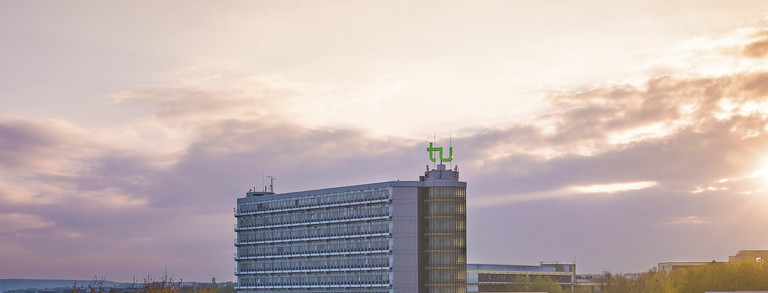Nobel-Prize-Winning Chemist Speaks to a Fully-Packed Lecture Hall
- Top News
- Campus & Culture
- Press Releases

In 2021, Prof. Benjamin List, Director of the Max-Planck-Institut für Kohlenforschung in Mülheim an der Ruhr, received the Nobel Prize in Chemistry. On Thursday, 2 February, he spoke to some 700 guests in the main lecture hall of TU Dortmund University about “Catalysis for a Better World” as part of the “Initial Spark” lecture series. The series points out that Alfred Nobel once conducted experiments at the nearby Dorstfeld coal mine.
For Prof. Benjamin List, catalysis is “the most beautiful science” – the Nobel Prize winner opened his lecture with this statement after being welcomed by TU President Prof. Manfred Bayer. You are only ever “just one molecule away from magic” because a single molecule of a catalyst is enough to trigger a chemical reaction. Catalysts are substances that facilitate or accelerate chemical reactions without being consumed themselves. The most well-known catalytic process is photosynthesis, but the production of medicines, fuel, paints and fertilizers would also be impossible without catalysts. “This makes catalysis one of the most important key technologies,” explained List.
A groundbreaking development and a “dream reaction”
The fact that nine Nobel Prizes were awarded in catalysis between 1900 and 2010 is also a testament to the immense importance of this field. All nine cases involved discoveries related to metal-based catalysts because, until the mid-1990s, only metals or metal-based enzymes were used for catalysis, but these are usually expensive, rare and potentially toxic. During his time as a postdoctoral researcher at the Scripps Research Institute in La Jolla, California, List became the first to successfully use organic molecules, in particular the amino acid proline, for catalysis. For this groundbreaking development in asymmetric organocatalysis, he received the 2021 Nobel Prize in Chemistry alongside David MacMillan from the United States, who had researched the same topic. Proline is now used in the development of an anti-HIV drug and in the production of the antibiotic ethambutol, among other things.
List went on to develop very effective and highly selective organic acid catalysts that made previously impossible reactions possible. And he still has other ambitious goals: His “dream reaction” is artificial photosynthesis. If it were possible to convert carbon dioxide into carbon and oxygen in a targeted manner, this would mean huge advances in the fight against climate change.
Visiting Nobel Prize winner wows audience
Prof. Benjamin List’s enthusiasm for catalysis also spread throughout the audience. The numerous questions and requests for selfies and autographs that came after the presentation were a testament to their great interest in the Nobel Prize winner and his research. He said it’s important for him to remain grounded despite all the attention surrounding the Nobel Prize: “I hope it doesn’t go to my head. I’m doing my best to avoid that.” And his relatable appearance at TU Dortmund University proved that he has been successful so far.
List also has academic ties with TU Dortmund University: The Director of the Max-Planck-Institut für Kohlenforschung is the Principal Investigator in the Cluster of Excellence “Ruhr Explores Solvation” (RESOLV), which is based at TU Dortmund University and Ruhr-Universität Bochum and researches the role of solvents.
About the “Initial Spark” series
In the 1860s, the Swedish chemist Alfred Nobel, inventor of dynamite and founder of the Nobel Prize, experimented with explosives in mining in Dortmund’s Dorstfeld coal mine, among other places. In order to blow up nitroglycerin more safely, he developed the detonator in 1863. In reference to this experimental phase that Nobel spent in Dortmund, the lecture series is entitled “Initial Spark”. Previous guests include Prof. Frances Arnold (Nobel Prize in Chemistry 2018), Prof. Erwin Neher (Nobel Prize in Medicine 1991) and Prof. Benjamin List (Nobel Prize in Chemistry 2021).
Highlights from the event
Contact for queries:





![[Translate to English:] Partner Four hands are holding the green logo of TU Dortmund University](/storages/tu_website/_processed_/1/d/csm_Partner_Nicole_Rechmann_KW_40b35bb3fd.jpg)




![[Translate to English:] Forschung An apparatus with tubes in a laboratory](/storages/tu_website/_processed_/0/c/csm_Forschung_Juergen_Huhn_cbd34afd6d.jpg)
![[Translate to English:] Studium Five students are sitting in a lecture hall. They are talking to each other.](/storages/tu_website/_processed_/c/9/csm_Studium_FelixSchmale_81d94adc86.jpg)















